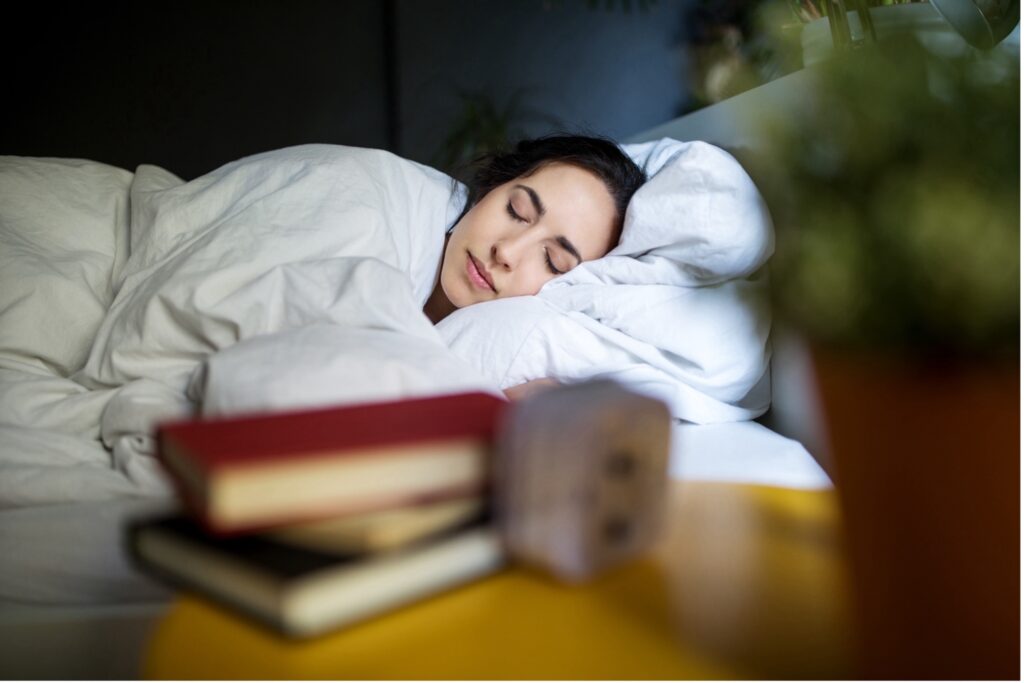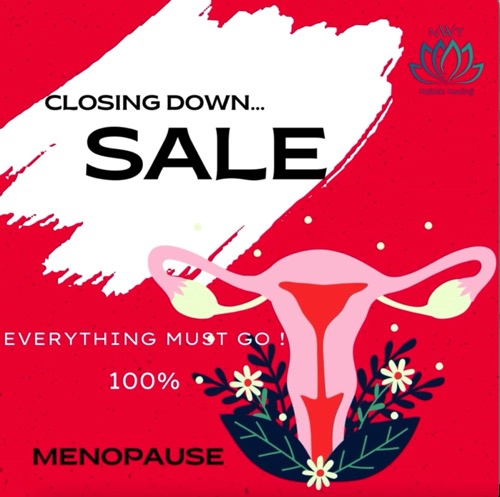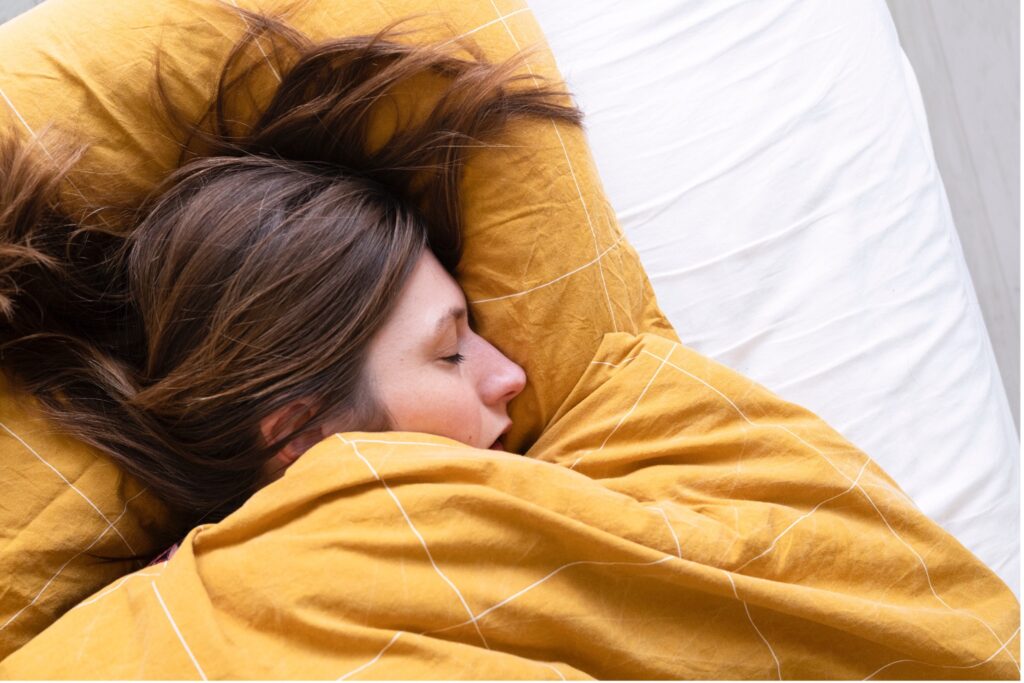
What is Menopause?

Menopause is the time in a woman’s life when her ovaries release their last supplies of eggs, it’s like a closing-down sale at the baby-making factory: “Everything Must Go!” During this time, hormone levels of estrogen and progesterone decrease, as this machinery for making babies will soon no longer be required.
This usually takes place in three stages:
- Perimenopause: The lead-up to menopause, often marked by hormonal fluctuations that can start in your 40s, sometimes even earlier.
- Menopause: Diagnosed after 12 consecutive months without a period, marking the official end of menstruation. This usually happens around age 51, but can vary widely.
- Postmenopause: This is what follows menopause, often a time when the hormonal levels struggle to recalibrate and find their new equilibrium.
Common symptoms during these stages may include hot flashes that could rival the sun in intensity, night sweats, and mood swings that can leave everyone tiptoeing around you!
How Menopause Affects Sleep Patterns
When hormones decrease, so can sleep quality.
- Hormonal changes: The drop in estrogen can lead to restless nights and decreased sleep efficiency.
- Night sweats and hot flashes: Are major sleep disruptors, often causing you to wake up feeling like someone has moved your bed into a sauna room!
- Sleep architecture changes: As menopause progresses, you notice that your REM sleep is M.I.A. This deep, restorative sleep is essential, and without it, you may feel more like a zombie than a vibrant woman ready to take on the world.
The Importance of Sleep for Overall Health
Sleep is not just a beauty treatment—it’s critical for overall health.
- Physical health connection: Poor sleep can lead to weight gain, weakened immunity, and a higher risk of chronic conditions. Think of sleep as your body’s daily servicing, and without it, your engine malfunctions and your wheels start falling off!
- Mental health implications: Sleep disturbances can exacerbate feelings of anxiety or depression—a combination that’s like adding hot pepper to an already spicy dish.
- Hormone regulation: Quality sleep helps regulate hormones that control metabolism, stress, and mood. When sleep goes awry, hormonal chaos often follows.
The Biochemical Changes During Menopause
Hormones and Sleep
- Estrogen and progesterone: They play key roles in regulating sleep cycles. When estrogen levels drop, trouble often follows.
- Adrenal and thyroid function: These glands also directly affect sleep. If they’re not functioning optimally, sleep disturbances are even more likely.
Neurotransmitters and Sleep Regulation
Certain neurotransmitters are like the ultimate sleep coaches.
- Serotonin: This happy little chemical also acts as a precursor to melatonin, the sleep regulator. Low serotonin often equals poor sleep quality. https://my.clevelandclinic.org/health/articles/22572-serotonin
- Adenosine: is a neurotransmitter that increases sleep drive, or the want to sleep. The levels of adenosine build up during waking hours until they reach a tipping point, (like a bladder gradually filling before the signal to go to the toilet), once the adenosine tipping point is reached you will feel sleepy.
- Melatonin: If serotonin is the anticipation of sleep, melatonin is the “lights out” command, signalling to your body that it’s finally time to hit the sack.
Psychological Effects of Hormonal Changes
The psychological rollercoaster of hormones can affect your sleep quality overnight.
- Increased anxiety: A common side effect of menopause that might leave you tossing and turning, worrying about everything from that awkward moment in primary school to what you’ll have for lunch next Tuesday.
- Depression symptoms: For some, menopause may trigger or worsen depressive symptoms, compounding sleep problems.
- Mood fluctuations: Some days you might love life and everyone in it, and on others, you might debate living in a shepherd’s hut away from everyone or spend hours scheming the demise of anyone who’s had the misfortune of wronging you! All these emotional swings can cause sleep disruption.
Common Sleep Disorders During Menopause
The menopausal phase can introduce a cocktail of sleep disorders, including:
- Insomnia: Whether it’s trouble falling asleep or staying asleep, insomnia is often a leading complaint among menopausal women.
- Sleep apnea: This condition can become more prevalent due to hormonal changes, leading to bouts of gasping for breath in the middle of the night.
- Restless leg syndrome: The urge to move your legs can strike at the most inconvenient times, disrupting whatever semblance of sleep you were trying to maintain.
Sleep Quality vs. Quantity
Let’s set the record straight: it’s not about simply how many hours you snooze.
- Importance of sleep quality: A full eight hours of tossing and turning isn’t worth much; quality is more important than quantity during menopause.
- Factors contributing to poor sleep quality: Things like lifestyle habits and environmental conditions can wreak havoc on that precious restful night you’ve been longing for.
Strategies to Improve Sleep During Menopause

Sleep Hygiene Practices
Good sleep hygiene promotes rest and relaxation as a precursor to sleep.
- Consistent sleep schedule: Go to bed and wake up at the same time daily. Your body loves a routine.
- Keeping a record: Recording how rested or energised you feel in the morning and throughout the day can be a great way to determine whether you are getting enough quality sleep and you can adjust your sleep schedule accordingly.
- Stop eating: ensure that your last meal or snack is a few hours before you plan to go to bed.
- Bedtime routine: Try setting your phone alarm each evening to remind you to take off your makeup, start your skincare and oral care routine, have a shower or bath, change into you night clothes. Do this before you start to feel tired so that you are ready to fall asleep once your body gives you the signal.
- Creating a sleep-conducive environment: Dim lights, comfortable bedding, and relaxing music or silence can turn your bedroom into a sleep sanctuary.
- Limiting screen time: Those late-night Netflix binges might be fun, but blue light mimics daylight and can keep you buzzing instead of snoozing.
- Avoid stress inducing activities: Watching a horror, thriller or action film or reading a similar book, or checking your social media newsfeed before bed might cause adrenaline and other stress hormones to course through your bloodstream which will inhibit the hormones needed to help you sleep.
Dietary Considerations
What you eat can impact how you sleep.
- Caffeine and alcohol: While a morning cup of coffee might kickstart your day, too late and it can ruin your night’s sleep. Caffeine can remain your body for 6 – 10 hours, so for those insomniacs out there, if you must have caffeine, it’s best to have your last caffeinated drink by the early afternoon! Alcohol may seem inviting but also often leads to poor sleep quality.
- Hormonal balance through nutrition: A balanced diet of healthy fats, proteins, and carbs can keep hormones from swinging wildly and thus helping towards a good night of quality sleep.
Mind-Body Techniques
- Relaxation techniques: Try yoga, breathing exercises, or meditation to calm racing thoughts before bed.
- Benefits of regular exercise: Daily exercise can help improve sleep quality as long as it’s not happening right before bed—unless you enjoy adrenaline-fueled insomnia!
- Cognitive Behavioral Therapy for insomnia (CBT-I): This therapy can be an effective way to tackle sleep problems with constructive strategies.
When to Seek Professional Help
Recognizing Severe Sleep Disturbances
- Signs that sleep issues are beyond typical menopause symptoms: Persistent insomnia, excessive daytime sleepiness, or severe mood changes warrant a chat with a healthcare provider.
Treatment Options Available
Finding the right solution can feel like a quagmire.
- Alternative Therapies: There are plenty of herbal remedies and holistic practices available to help you navigate this life change and sleep challenges. NWT Holistic healing specialises in this type of service. Book your consultation here: BOOK
- Conventional Therapies and consulting healthcare providers: Open communication with your healthcare provider can also help ensure you receive tailored strategies that fit your unique needs.
Conclusion
In conclusion, sleep is not just a necessity; it’s a lifeline, especially during the rollercoaster ride that can be menopause. Recognizing its importance and treating it well can create the balance necessary for well-being during this transitional phase. Adopt sleep strategies, prioritize rest, and don’t hesitate to seek help if things get rough. Remember: everyone needs a restful night’s sleep especially during menopause.
Recommended reading: Why We Sleep: The New Science of Sleep and Dreams by Matthew Walker



